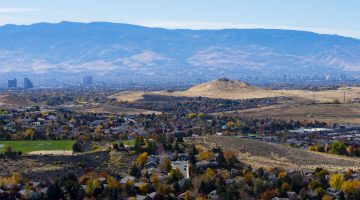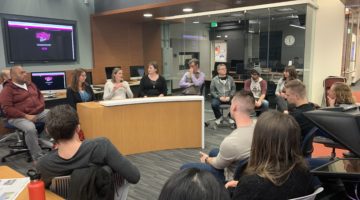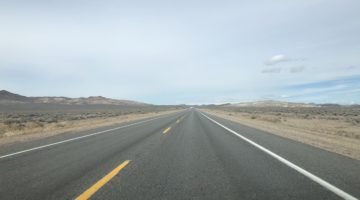I still remember riding in the back of my parent’s tiny car, eyes glued to the passing scenery of densely packed pine trees and adorable cabins, ripped straight from the pages of Better Home and Gardens magazine. Lowering the window ever-so-slightly, I inhaled the fresh air deeply — a phenomenon I wasn’t quite familiar with coming from Las Vegas. Suddenly, my dad excitedly pointed forward announcing, “Look, there they are: the Olympic rings!” I leaned forward just enough to see the five rings proudly brandished above a towering sign proclaiming “Squaw Valley USA.”
When driving past the resort these days, it is hard to believe that Squaw Valley was once chosen to the host the 1960 Winter Olympics for its quaint and intimate atmosphere. What was once an underdeveloped ski village was transformed for the Olympics, setting the foundation for Squaw to become the massive resort that so many people see today. Over time, Squaw has used the momentum that the Olympics brought to catalyze strong growth in its facilities for guests.
With its developed infrastructure and pristine ski slopes, it is time for the Reno-Tahoe area to recapture the world’s attention by hosting the 2026 Winter Olympics.
The past year has been an important one for Northern Nevada — from the announcement of Tesla’s new gigafactory to the election of Reno mayor Hillary Schieve — we are experiencing a changing tide. This is a tide that the Reno community in particular has ridden to market itself as an appealing destination for visitors from around the world.
Recently, Reno has been shaking off its infamous “Reno 911” persona in favor of a more cultured and globalized community. Local city planners and officials have focused their efforts on developing projects like MidTown and Startup Row as opposed to obnoxious casinos. The aggregate result of these efforts is a new image of progress in Reno and its economy — an economy that, historically, has seemed solely based on gaming.
Beyond the growth of small businesses and cultural outlets, the Reno area constantly strives to associate itself with Tahoe. In 1994, the airport rebranded itself as “Reno-Tahoe International” to build a stronger connection between the areas.
Hosting the Winter Olympics would strengthen this type of image association, as many athletes and fans would most likely be staying in Reno during the competition. This would not only solidify the new reputation of Reno on an international scale but all of Northern Nevada as well. Reno is the most populated city in Washoe County and acts as reflection of the community as a whole.
For these reasons, our community needs to band together in support of this international undertaking. The Reno Tahoe Winter Games Coalition is a nonprofit organization aimed at branding the area as ideal for Olympic games. To do so, the coalition of community leaders works to bring a variety of winter sports to the area, showcasing the idyllic terrain and environment for competition. The process of choosing a host city takes nine years, which means that we are just three years from fighting for a bid. The looming deadline makes present day a critically important time for community collaboration.
The coalition plans a number of events throughout the year, many of which need the help of community volunteers. From fantastic luncheons to winter sports competitions, you have the ability to play a role in promoting the area through community events.
A goal such as this one can only be achieved if people throughout the Reno-Tahoe area band together and show a true desire for an event like this. The Olympic games are meant to bring the world together for one common purpose, so the site of the games will have to be a community that is ready and hopeful for its future.
Northern Nevada is in a transitional time, and it is the responsibility of its citizens to lay the right foundation for sustained development. Holding the Winter Olympics would bring attention to the massive changes Northern Nevada has made in the past few years and could spell major image and economic strength for the area. We have a chance to change the way this world views our home forever — so let’s reach out and take it.
Daniel Coffey studies journalism. He can be reached at dcoffey@unr.edu and on Twitter @TheSagebrush.












